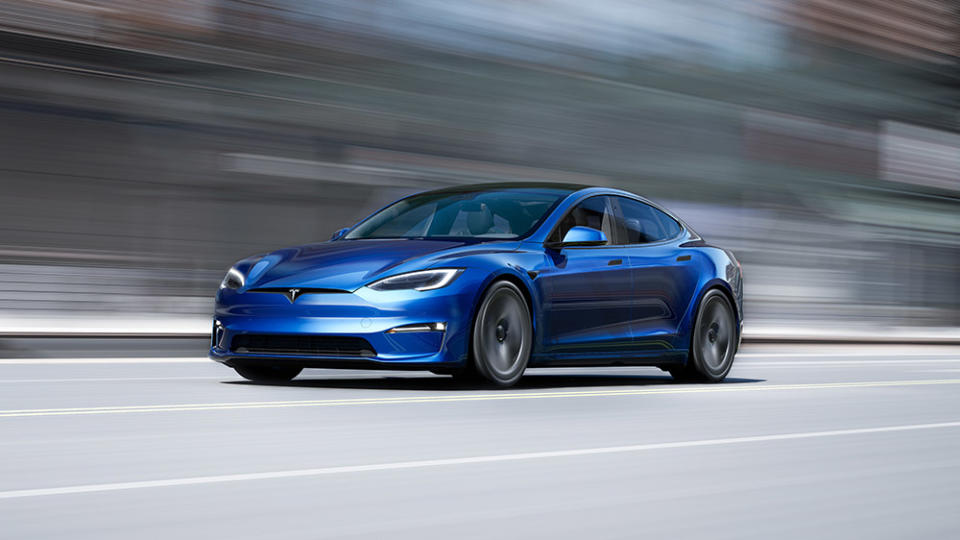
Rick Ross has been skeptical of Tesla’s driver’s assistance software for a while now, but not for the reason you may be thinking.
Last month the rapper (and car lover) took to Instagram to explain why he’s never ridden in one of Elon Musk’s electric cars or SUVs, according to Insider. Da Boss revealed that he’s not worried about the company’s EVs themselves—he’s worried about them being hacked.
More from Robb Report
“I’m not going to say I won’t have a smart car, but I’ve never ridden in a Tesla. Never,” he reportedly said in an Instagram story. “And the reason being I’ve always had it in the back of my mind the government could tap into the brain of the car.”

Ross then proceeded to lay out a scenario in which a Tesla he was riding in was hacked so that it took him from a Wing Stop restaurant to a location where authorities were waiting to question him—and not about the meal he’d just finished. The rapper later added that he could also imagine a Tesla repossessing itself if its owner missed a payment. Considering the riches he has to his name, we imagine this second scenario isn’t one that keeps him up at night.
Whatever Ross may think, there is no proof that a government agency has tried to remotely control a Tesla. Hackers have been able to identify and exploit security vulnerabilities, though. Last January, cyber security researcher David Colombo gained access to 25 of the marque’s EVs after identifying a bug in the popular TeslaMate open-source logging tool, according to Insider. Colombo waited until after the exploit had been fixed to make his findings public, but also said he did not believe it would be possible to drive the vehicle remotely.
Of course, the government thinks there is a bigger issue to worry about when it comes to Tesla driver’s assistance technology—safety. The marque had to recall over 362,000 vehicles equipped with its Full Self-Driving (FSD) Beta software suite after the NHTSA found that it allowed vehicles to act in an “unlawful or unpredictable manner” that increases the risk of accidents. Tesla disagreed with the agency’s findings but voluntarily recalled the vehicles “out of an abundance of caution.” On Monday, less than two weeks after the recall, the automaker announced it was temporarily halting FSD Beta’s rollout until it issues an over-the-air update fixing the issue.
Best of Robb Report
Sign up for Robb Report’s Newsletter. For the latest news, follow us on Facebook, Twitter, and Instagram.










